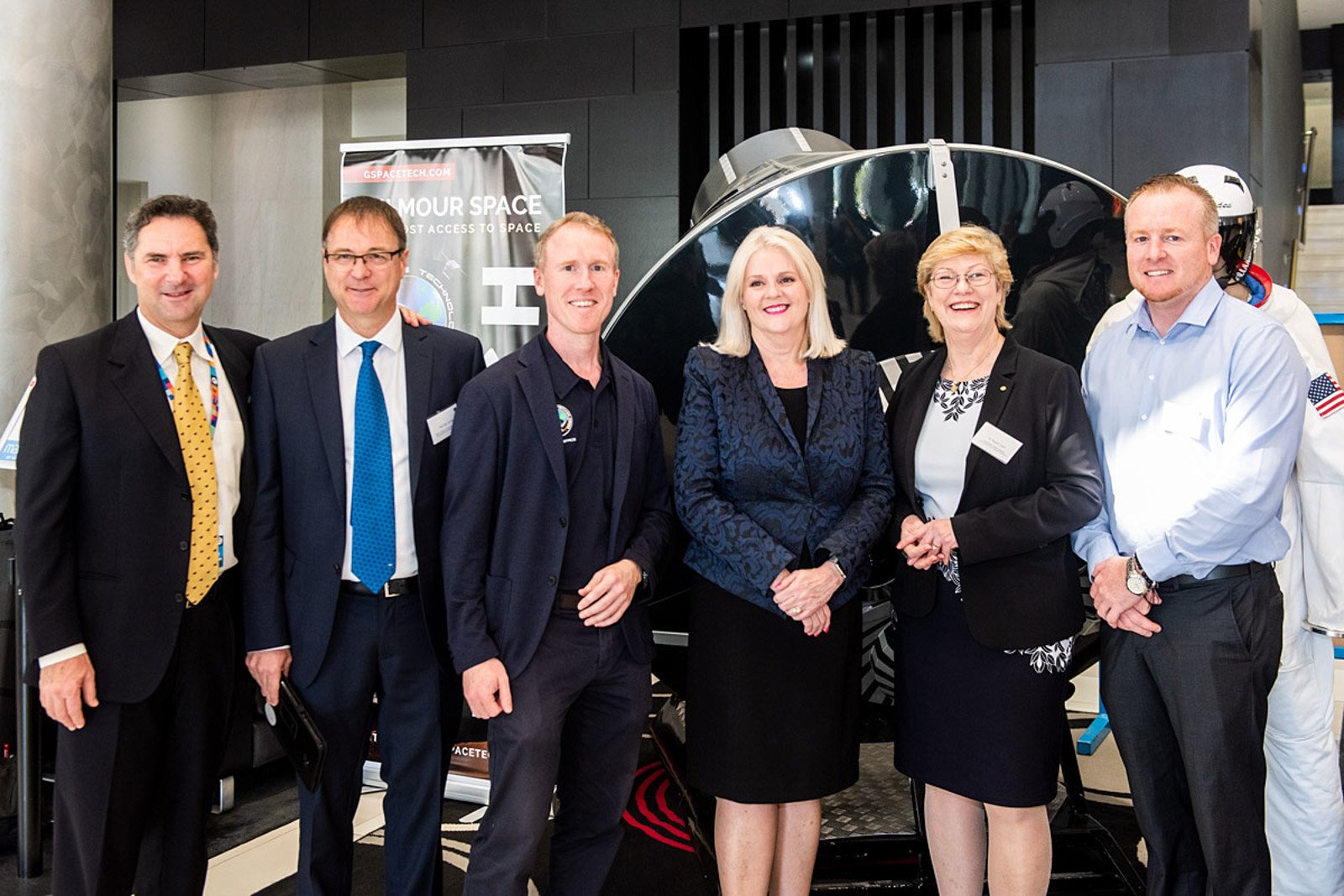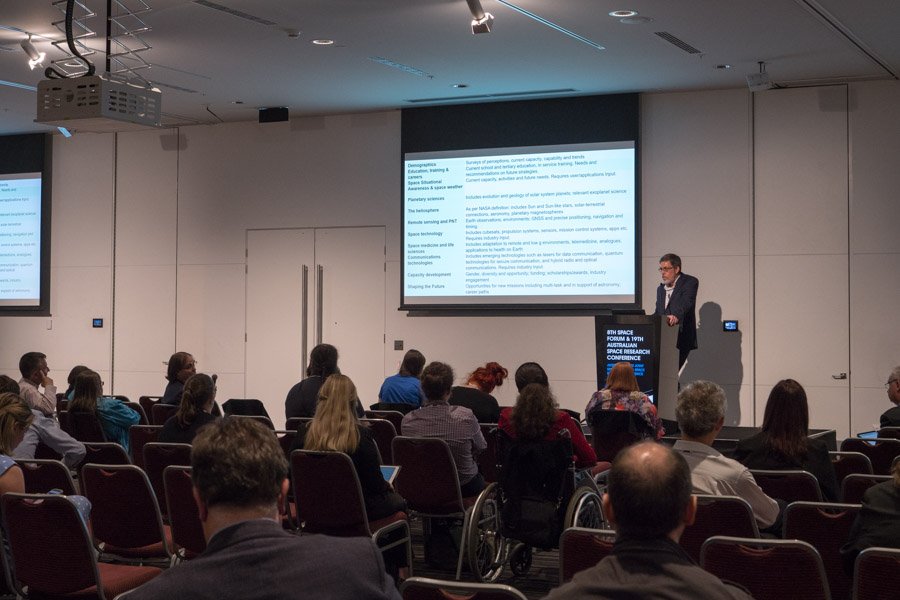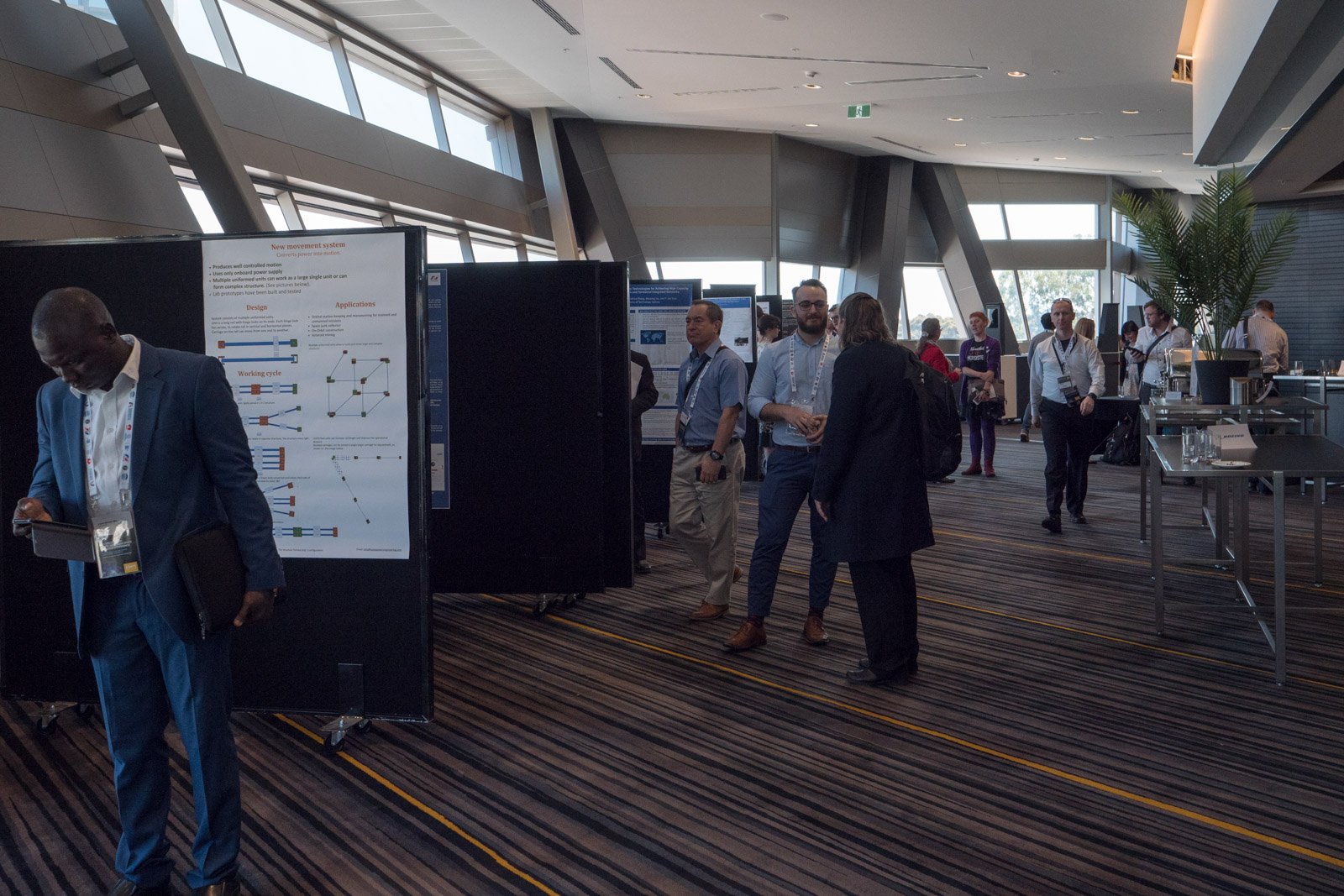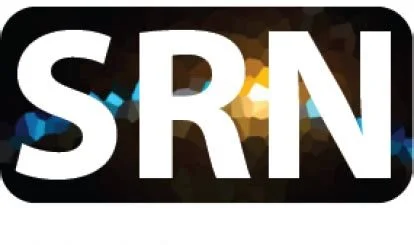
Australian Space Research Conference
Broaden Our Horizons: Hobart, September 25 - 27, 2023
About the Conference
The 21st Australian Space Research Conference (ASRC) was held in Hobart in 2023 at the university of Tasmania’s Sandy Bay campus.
The conference is co-hosted by the National Committee for Space and Radio Science and the National Space Society of Australia, in partnership with the Mars Society of Australia. The organising committee extends a warm invitation to space scientists, engineers, educators, and industry, government, and NGO personnel.
Abstracts Open: 1 May 2023
Registration Begins: 16 July 2023
Abstracts Close: 26 July 2023
Abstracts Accepted: 6 August 2023
Draft Program Release: 29 August 2023
Conference Start: 25 September 2023
Conference End: 27 September 2023
Last Date for Paper Submission: 13 November 2023





Program
The 2023 conference program is now available. The plenary and invited speakers included:
Dr Ed Kruzins (UNSW Canberra)
Dr Anna Wang (UNSW Sydney)
Professor Martin van Kranendonk (UNSW Sydney)
Professor Phil Bland (Curtin University)
Professor Paulo de Souza (Griffith University)
Dr Elyse Allender (Australian Space Agency)
Dr Carl Seubert (SmartSat CRC)
Dr Roger Kermode (UTS)
Dr Kimberley Clayfield (CSIRO)
Dr Jeffrey Ayton (AAD)
Dr Emma Bland (DSTG)
Dr Andrew Klekociuk (AAD)
Dr Brett Biddington (Biddington Research)
Industry Incubator Session
Wednesday September 27, 11am. Studio Theatre
The National Space Mission for Earth Observation was funded in response to industry and national needs. It has since been defunded, but those needs remain.
The NSW Space Research Network (SRN) invites you to join some of the nation's foremost minds from industry and academia in designing a collaborative, practical approach to identifying and addressing these needs in the next years.
The session will work with the participants to identify relevant capabilities and technologies, ideate industry-research partnerships, and present a program that can be leveraged to assist in making the necessary next steps toward the ultimate goal of securing funding for an EO capability.
This session is facilitated by David Reynolds (Business Development Manager, SRN) and Gabriel Lodewijks, (SRN Deputy Director, Industry)
Explore the diverse range of topics our conference covers
-
Delve into the universe's mysteries through topics like space and atmospheric physics, Earth observation and remote sensing, planetary sciences, astrobiology, and space-based astronomy and astrophysics.
-
Explore how space affects living organisms, from understanding the complexities of human habitability in space to the study of life sciences in extraterrestrial environments.
-
Discover the technological backbone of space exploration, encompassing communications, navigation, space operations, propulsion, and spacecraft design, testing, and operation.
-
Learn about the commercial and economic aspects of space exploration, from space-based industries to the business strategies propelling space ventures.
-
Unearth the past and indigenous perspectives on space with a focus on space archaeology and archaeoastronomy, the study of ancient, indigenous astronomical knowledge.
-
Stay informed about the ever-evolving space environment, including space weather and the tracking and prediction of natural and artificial objects in space.
-
Get to know both current and future Australian space initiatives that aim to push the boundaries of our understanding and capabilities in space.
-
Delve into the legal and international aspects of space exploration, including international relations, space policy, and law.
-
Understand the educational efforts and workforce development initiatives essential for growing and maintaining a thriving space sector.
Papers for Peer Review
Full papers may submitted post-conference for peer review and publication in conference proceedings. These will carry an ISBN number.
Papers are to be submitted in MS-Word Format which can be later converted to df. Sample of paper guidelines here.
Due date for papers is November 13.
Presentations
Oral Presentations: Plenary or Invited presentations are 30 minutes in length. Normal oral presentation are capped at 15 minutes. All presenters should allow time for Q&A with other delegates. 2 minutes for normal presenters and up to 5 minutes for plenary/invited presenters.
Poster Presentations: These presentations will occur on Monday September 25. Posters may be maximum of A1 size in either landscape or portrait orientation.
Registration Rates
Conference Activities
Monday September 25
Conference cocktail function. This will be held at 4:30 pm Monday after the poster presentations.
Tuesday September 26
The conference dinner . This will be held at the nearby Wrest Point Hotel.
Hotel is short walk from University campus at 410 Sandy Bay Road.
A map of the hotel grounds is attached here. Dinner is in the Boardwalk gallery - which has great views of the river. You can enter the building numerous ways, via the Main Entrance, or the Air Bridge from the Main Car Park or from the Wellington Entrance, all detailed on the Map.
The dinner includes a 3 course meal with drinks an additional cost.
(The dinner is now fully booked but waiting list is in place in case of of cancellations).
Wednesday September 27
Women in Space Lunch
This will be held during lunch on September 27 at approximately 1:20pm. Location is the Studio Theatre.
-
Early-bird rate - $75
Normal rate - $100
-
Early-bird rate - $135
Normal rate - $150
-
Early-bird rate - $350
Normal rate - $400
-
Early-bird rate - $450
Normal rate - $500
-
Normal rate - $250
-
Normal rate - $200
Outreach Activities
Monday September 25
David Cooper Memorial Lecture - Public talk
Presenter : Associate Professor Katarina Miljkovic, Curtin University
Title: “What can Mars craters tell us about planetary crusts, origin of meteorites, resources and habitability?”
Location: Physics Lecture Theatre 1, University of Tasmania Sandy Bay Campus. The theatre is on level 2 of the physics building.
Time : 7 pm start (doors open at 6:30pm)
Cost: This is a free event
More details on the location, speaker and the lecture are here.
Please book your seat via Eventbrite here.
Thursday September 28
A morning tour of the University of Tasmania’s radio telescope observatory at Mount Pleasant.
This facility is a short distance from the University campus at Sandy Bay. Delegates will be asked to register their interested in attending this as it an optional activity.
Duration : 3 hours from 9:30am
Transport will be via bus leaving at 9:30 am sharp near the Campus. Those attending should arrive by 9:15 am outside conference venue so we can walk over to the bus.
This delegates only event is now fully booked. The list of attendees can be found here.
Location & Inquiries
University of Tasmania
Sir Stanley Burbury Theatre,
Sandy Bay TAS 7005
A map of the Sandy Campus is can found here. Sir Stanley Burbury Theatre (presentations) is building 26. The Studio theatre used for our catering is building 27.
General Inquiries:
asrcconference@nssa.com.au
phone: +61 411 296 541
Conference Committee
Wayne Short
Conference Co-Chair, National Space Society of Australia
president@nssa.com.au
Iver Cairns
Conference Co-Chair, University of Sydney
iver.cairns@sydney.edu.au
Fred Menk
Chair, Program Committee, National Committee for Space and Radio Science
fred.menk@newcastle.edu.au
Accommodation
There is a number of hotels in Hotel available for delegates.
Wrest Point Hotel is the closest accommodation at only 10 minutes walk from campus. There is a special discount room rate available for delegates here.
The University of Tasmania at Sandy Bay is around 30 minutes walk from the CBD. There is a routine Metro bus service Route 401 operating to campus from Hobart city and the travel time is only 12 minutes.
Sponsors
Australian Space Agency
University of Tasmania
US Office of Naval Research Global
NSW Space Research Network
Boswell Technologies








